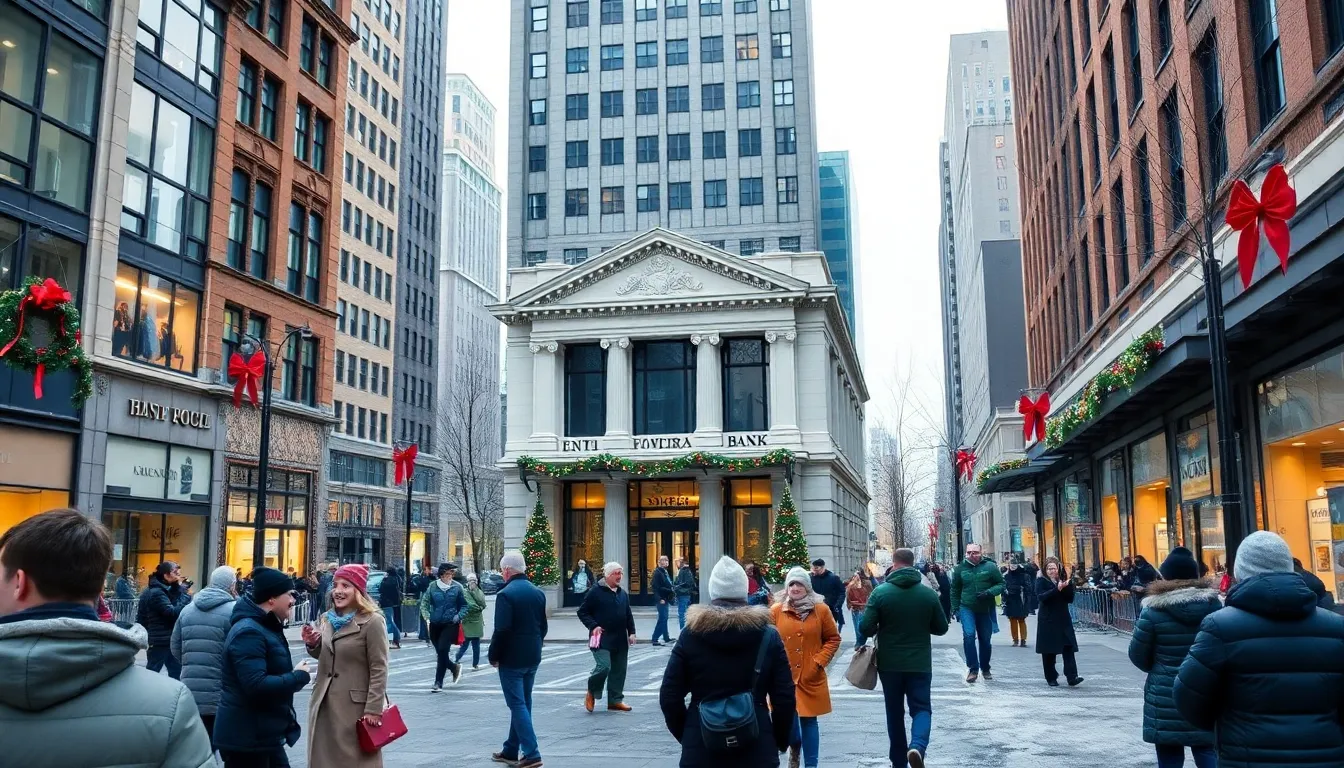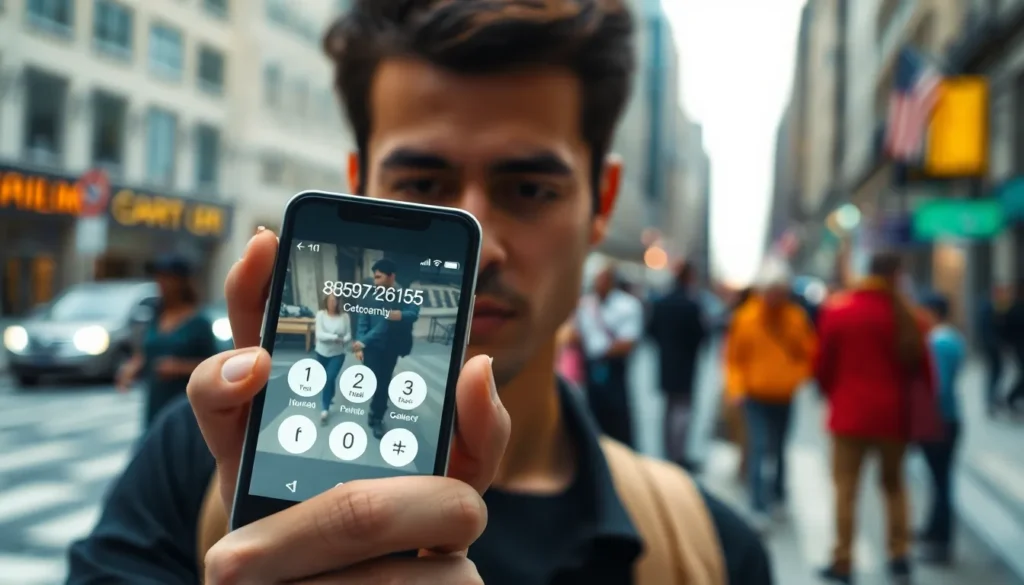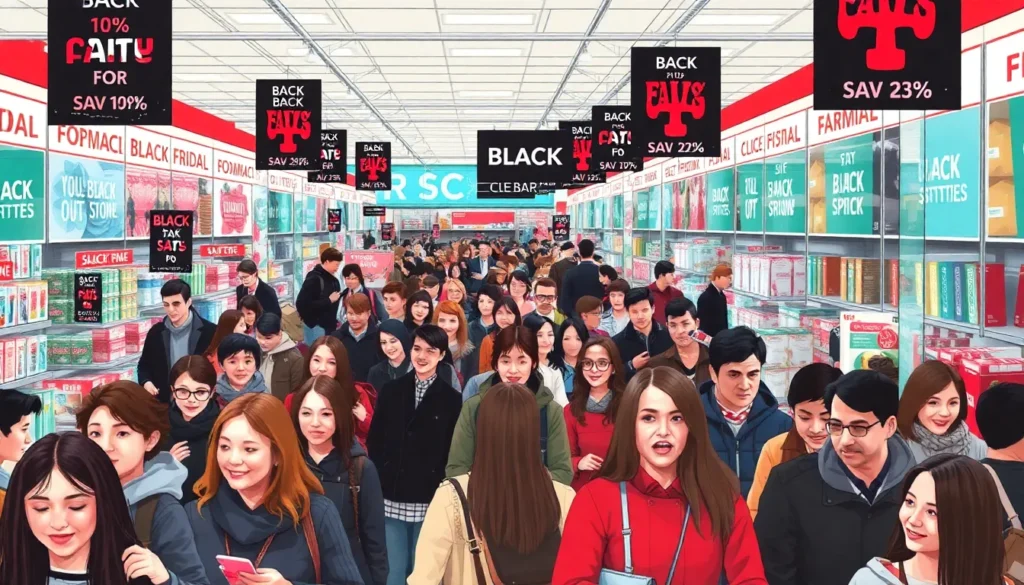Table of Contents
ToggleAs the turkey leftovers vanish and the holiday lights twinkle to life, shoppers everywhere gear up for the most chaotic day of the year—Black Friday. But wait, is this shopping extravaganza a bank holiday? While many folks might wish for a day off to recover from their shopping sprees, the reality is a bit less forgiving.
Despite the frenzy and the discounts that could make even Scrooge smile, Black Friday isn’t officially recognized as a bank holiday in the U.S. So, if you’re dreaming of a cozy day off to snag those deals, you might just have to settle for a caffeine-fueled sprint through the aisles. Let’s dive into the details and uncover the truth behind this shopping phenomenon.
Understanding Black Friday
Black Friday follows Thanksgiving, becoming a significant shopping event. Many retailers offer substantial discounts, attracting millions of shoppers.
History of Black Friday
Black Friday originated in the 1960s in Philadelphia, where police used the term to describe the chaos created by crowds. Retailers began to embrace the name by the late 1980s, highlighting their profit margins turning from red to black during the holiday shopping season. Events now include early openings and extended sales periods, reflecting its evolution into a nationwide phenomenon.
Significance of Black Friday
Black Friday serves as an unofficial kickoff to the holiday shopping season. Businesses generate substantial revenue, with sales typically exceeding $14 billion in the U.S. Retailers leverage marketing strategies and doorbuster deals to attract customers. Many consider the day’s discounts essential for holiday shopping budgets, influencing consumer spending patterns for the remaining season.
Bank Holidays Explained

Bank holidays refer to days when banks and many businesses close their doors to observe specific occasions. These holidays often coincide with federal holidays, although each state may designate additional days as bank holidays.
Definition of Bank Holidays
A bank holiday signifies a day when financial institutions remain closed for business. Typically, such closures occur to honor national holidays, allowing employees a day off. During bank holidays, public services may also reduce operations, impacting various financial transactions. While the specific observance of bank holidays varies, the concept exists primarily to give workers time to celebrate or participate in significant cultural and historical events.
Examples of Bank Holidays in the U.S.
In the United States, several key days are recognized as bank holidays. New Year’s Day, Independence Day, and Christmas Day consistently see banks unchanged hours. Additionally, Martin Luther King Jr. Day and Memorial Day observe bank closures, celebrating historical and patriotic significance. Labor Day and Veterans Day also evoke a pause in bank operations, aligning with nationwide observance. Each of these holidays stands vital in honoring both cultural and historical memories.
Is Black Friday a Bank Holiday?
Black Friday isn’t classified as a bank holiday in the U.S. While it’s a significant shopping day, it doesn’t receive any formal government recognition as a holiday.
Government Designation
The federal government does not designate Black Friday as an official bank holiday. This means that banks remain open, along with many other businesses. Recognized bank holidays, including New Year’s Day and Christmas Day, often entail closures, providing employees with time off. Consequently, Black Friday lacks this status, allowing regular operations for banks and most workplaces. Without that government designation, Black Friday functions as a commercial event rather than a public holiday.
State Variations
Some states might observe unique regulations or practices regarding Black Friday. Certain retailers may offer extended hours to accommodate shoppers, enhancing the shopping experience on this day. However, no U.S. state officially recognizes Black Friday as a bank holiday. Policies regarding time off and work hours can vary from one state to another, impacting how businesses choose to operate. Retailers decide based on competitive advantages and consumer demand rather than any mandated holiday status.
Impact of Black Friday on Retail
Black Friday significantly influences retail dynamics, driving changes in consumer behavior and economic outcomes.
Consumer Behavior
Shoppers display heightened enthusiasm during Black Friday, resulting in increased foot traffic and online visits. Many consumers plan ahead, creating shopping lists and mapping store routes to maximize savings. Some individuals even budget specific amounts for significant purchases during sales. Promotions and discounts entice buyers, triggering impulse purchases that might not otherwise occur. Competitive pricing encourages comparison shopping, altering buying patterns. Engaging marketing strategies further amplify excitement, making consumers more likely to shop early and take advantage of limited-time offers.
Economic Implications
Retailers heavily depend on Black Friday sales for their annual revenue. Research shows that U.S. sales can exceed $14 billion during this shopping event. Increased consumer spending positively impacts local economies and boosts overall retail employment. Businesses often allocate significant budgets for advertising, and this investment leads to higher visibility. Seasonal hiring spikes as retailers prepare for customer influx, creating temporary job opportunities. Economic indicators frequently reflect the financial success of Black Friday, making it a barometer for holiday retail trends.
Black Friday’s significance in the retail calendar is undeniable. While it may not hold the status of a bank holiday, its impact on consumer behavior and economic trends is substantial. Shoppers eagerly anticipate the deals and discounts, shaping their holiday shopping strategies around this day.
Retailers recognize the importance of Black Friday, adjusting their hours and marketing tactics to capture the increased foot traffic. The day sets the tone for the holiday shopping season, influencing spending patterns and driving revenue for businesses. Understanding its role in the retail landscape helps consumers navigate the excitement and opportunities that come with this annual event.







